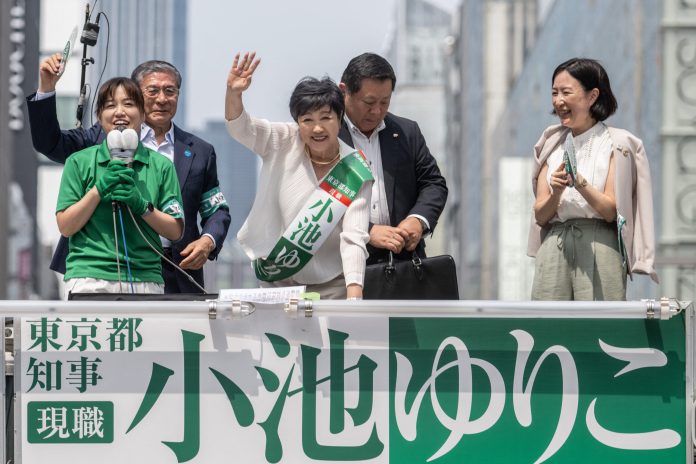In Tokyo residents go to the polls today to elect a new mayor for the Japanese capital, Japan media reported.
The vote in Tokyo came after new government data showed the birthrate hit a record low of 1.20 last year, with Tokyo’s birth rate at 0.99 – the first region in Japan to fall below one. In the capital, local authorities are trying to ease the burden in various ways
Moreover, Japan has never seen a female prime minister and the overwhelming majority of legislators are male, but Tokyo, which accounts for a tenth of the country’s population and a fifth of its economy, has been governed since 2016 by former TV presenter Yuriko Koike, 71. The incumbent governor faces opposition leader Renho, 56. Both have promised to expand support for parenting, with Koike pledging to subsidise epidural anaesthesia.
After having their first child, I hear people say they don’t want to experience that pain again. I want people to see childbirth and raising children as a happiness, not a risk, according to Koike.
The victory of Koike so far would be a relief for Kishia’s conservative ruling party, with which she has long aligned herself. Kishiad’s Liberal Democratic Party and her junior coalition partner Komeito have unofficially backed her campaign.
I will implement genuine long-term fertility measures, support young people thoroughly, and expand their life choices. I will also realise transparent fiscal reforms, where everyone can check the situation, Renho, for her part, said.
In a race largely between two women, independent candidate Shinji Ishimaru, 41, a former mayor of the western Japanese city of Akitakata, also has some appeal as recent polls have shown, with some wavering voters favouring him over Koike and Renho.
A record 56 people are running in the election, but not all of them are serious, which makes a few candidates stand out from the multitude of others. Local media speculate that turnout could be higher, given that early votes cast before July 5 reached 1.65 million, up 20 percent from 1.38 million in 2020. Overall voter turnout in the latest vote was 55 per cent, compared with nearly 60 per cent in Koike’s first election in 2016.
